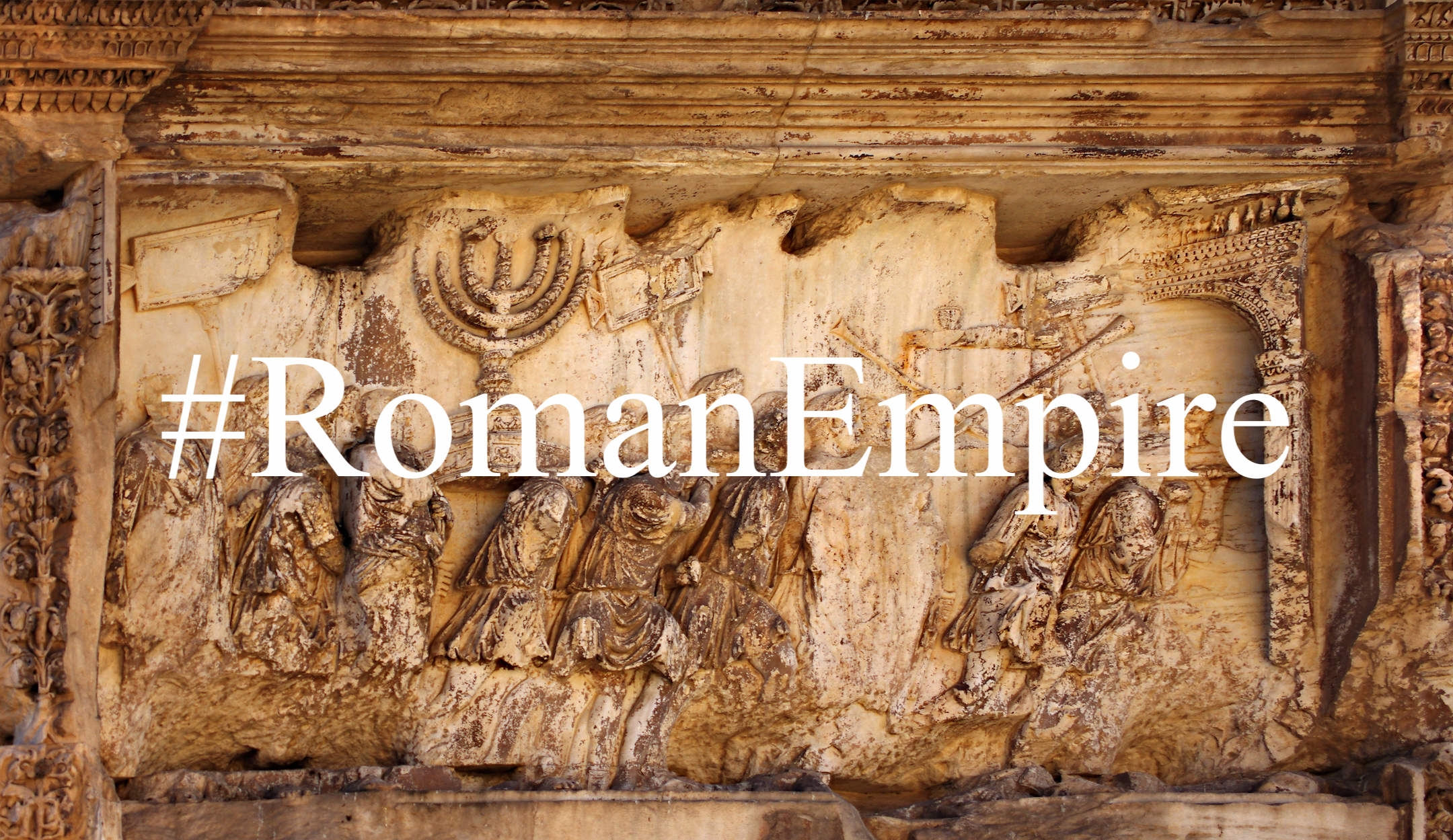Jewish men (and women) think about the Roman Empire all the time. We can’t avoid it.
A rabbi responds to a new TikTok meme, noting how Jewish tradition was shaped by its encounter with the Romans

The Arch of Titus in Rome, South inner panel, showing spoils from the fall of Jerusalem (Paolo Villa/Wikipedia)
(JTA) — How often do men think about the Roman Empire? It’s a question that’s been hard to avoid lately, after a woman on TikTok asked it of her husband and he answered immediately: “Every day.”
Since then, the hashtag #RomanEmpire has raked in millions of views across multiple social media platforms, with men admitting that, yes, they do think a lot about the Roman Empire. Some suggested it was the fascination with military conquest, others the appeal of gladiators (and the 2000 movie “Gladiator”) and still others a love of history. On the less savory side, some men seem drawn to the patriarchal nature of Roman society and the idea that Rome was the foundation of Western (read, “white”) civilization.
Like a lot of cultural phenomena that flow from the strange, turbid waters of TikTok, the question soon spread beyond social media. And also like a lot of what catches on there, it can be easy to dismiss the whole thing — along with its peculiar, gendered valances, its memes and counter-memes — as a brief, hot-burning fever of the terminally online.
Yet I have found myself pondering the question more than I would have expected. And the reason is that as with almost everything — at least in the eyes of Jews who are inclined to look, as I as a rabbi find myself to be — Jewish tradition has a lot to say about how often we should contemplate the world of caesars and praetorians.
Probably the most obvious reason why a good Jew thinks often about the Roman Empire is, of course, historical trauma. In one way or another we recall the destruction of the Second Temple at the hands of the Roman emperor Hadrian — a national and spiritual disaster of the highest order — at weddings and in daily prayer, on Tisha B’Av and on Yom Kippur. We leave symbols of the destruction on the walls of our homes. Its memory deforms a large swath of our summer, robbing us of music, swimming pools, haircuts and joy.
For the ancient sages, all of this is rooted in thinking about the Roman Empire. Their thoughts turned to the empire often, and their thoughts were dark. They equated pre- and post-Christian Rome with Esau, Isaac’s wayward son, and they equated Esau with all that was evil and through the power of the literature they left behind they ensured that generations of Jews would do the same.
But, on a very basic level, it’s also worth remembering that the ancient rabbis — the progenitors of the Mishnah and the Talmud upon whose visionary creativity all subsequent Jewish history and religious culture is based — were deeply enmeshed in ancient Roman society. Though not quite citizens, they were acculturated and literate. They incorporated Roman traditions into a variety of Jewish practices, including how we light Hanukkah lights and how we experience the seder.
Through a stroke of luck, history has preserved a marvelous epistolary exchange between the great Roman orator Cicero and his father. In a letter, Cicero informs his old man that he has decided to become a vegetarian. His father, in his response, tells Cicero that this simply won’t do because as a vegetarian he would not be able to eat from the sacrifices to Zeus and consequently everyone would think he was a Jew.
What is remarkable and important about this exchange is not his father’s Jew-hatred — the presence of casual antisemitism everywhere is wholly unremarkable, as every Jew knows — but rather that Cicero’s father’s admonition, even as it otherizes the Jews, belies the fact that the Jews of ancient Roman Palestine, the rabbis and their followers, appeared very Roman indeed. After all, if not for their bizarre abstention from eating Roman cult sacrifices, they looked just like Cicero! They were, to put it succinctly, toga- and sandal-wearing, lettuce-dipping, symposium-loving Romans.
So ironically, even as the main thrust of rabbinic tradition is starkly anti-Roman, the ancient rabbis were very much products of their times. They were about as Roman as I am American, which is to say almost but not quite and, in the end, it is the not-quite rather than the almost that is determinative.
My view of the Roman Empire is informed by a frothing admixture of resentment, fear and admiration, a strange, Jewish brew that I inherited from my ancient ancestors. So how often do I think about the Roman Empire? I think about the Roman Empire all the time.
This article originally appeared on JTA.org.
A message from our CEO & publisher Rachel Fishman Feddersen
I hope you appreciated this article. Before you go, I’d like to ask you to please support the Forward’s award-winning, nonprofit journalism during this critical time.
We’ve set a goal to raise $260,000 by December 31. That’s an ambitious goal, but one that will give us the resources we need to invest in the high quality news, opinion, analysis and cultural coverage that isn’t available anywhere else.
If you feel inspired to make an impact, now is the time to give something back. Join us as a member at your most generous level.
— Rachel Fishman Feddersen, Publisher and CEO